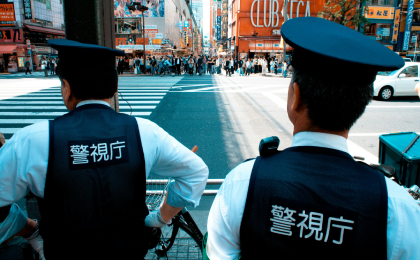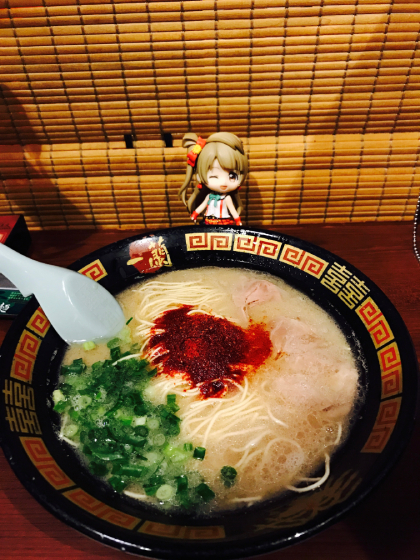Living and working in Japan long-term? While you’ve probably gotten past the initial culture shock, daily life still holds a few nice, and not-so-nice, surprises!
In this article, we’ll share the top 10 most surprising things that expats discover about Japan. 🗾
See if you can relate to some of the surprises in our list that keep expat life here so memorable!

Hello readers! Sakura Mobile is a SIM Wi-Fi service provider for international residents and tourists in Japan.
Our global editorial team living in Japan will introduce the country’s charms based on what we have experienced and felt.
Top 10 Most Surprising Things that Expats Discover about Japan
So, you’ve overcome the first few hurdles of life in Japan. You set up your bank account, moved into your apartment, and settled into your new job.
Think you’ve got this “life in Japan” thing down? Not so fast! Just when you feel like you’ve adjusted, Japan throws in a few unexpected twists—some delightful, others a bit perplexing.
This list dives into some of the most surprising things you might encounter as an expat or international resident, giving a glimpse of what makes living here so unforgettable.
Ready to see what’s in store?✨
Table of Contents
- Open up! It’s the Japanese police!👮♂️
- Your Friendly Neighborhood Gomi Guards 🗑️
- Trouble Finding a Good Phone Plan 📞
- Still Can’t Get a Credit Card 💳
- Double Taxes?! 💸
- Sleeping on the Job = Hardworking 😴
- Life-Long Friends 👯♀️
- Dining Solo? No problem!😋🍽️
- Japan ISN’T Living in the Future?🤖
- Manners on the Train – not so polite after all? 🚃
- Extra: Cringy Cars 🚗
- Conclusion
1. Open up! It’s the Japanese police!

Don’t be alarmed if the police knock on your door—they’re likely doing routine checks to let you know about a crime or accident in the area.
I once had a cop ring my door when I was in the middle of changing…Oops. 😅 I threw on a shirt and quickly answered the door, and he was already talking to my neighbor. I thought “Oh no! Did my neighbor make a noise complaint?” Luckily, he was just warning us about a suspicious person in the area. The cop let us know that while the guy may have a staring problem, he was harmless (yay!).
Maybe because Japan has such a low crime rate, you’ll also see many cops called to the scene over what seems like a one-man job. One stubborn bird standing in the middle of the road might summon 6 to 7 cops to the scene to carefully diffuse the situation, for example. 🚨👮♂️🐦👮♂️🚨
Fun fact: If Japanese cops run into a super violent or drunk individual, they use their special “burrito attack” where they roll them up into a futon-like sheet. Watch the video below for evidence!
↑ Go back to the table of contents
2. Your Friendly Neighborhood Gomi Guards

If you live in the countryside or own a house, you may be asked to join your neighborhood association, or chonaikai (町内会). Joining is a great chance to get closer to your local community, but some may find the responsibility a bit draining.
Besides holding community events and disaster drills, they also rotate duties for cleaning the garbage collection areas. Make sure to sort your trash properly, or you might be reported to the neighborhood chief! Depending on where you live, you might not even be allowed to throw away your trash if you don’t join the chonaikai or pay the membership fee.
https://tsunagarujp.mext.go.jp/level02/b03?lang_id=EN
↑ Go back to the table of contents
3. Trouble Finding a Good Phone Plan

Maybe you came to Japan using your home carrier’s international plan. You might’ve run into a few roadblocks because you needed a Japanese phone number for various procedures.
In my case, I was using Google Fi until I reached their 90-day limit for using data abroad, so I had to find a new phone plan soon. Signing up with one of the big mobile carriers in Japan (docomo, au, SoftBank) was intimidating at the time. I wanted to avoid any 1 or 2-year commitments, and I knew the entire process, contract, support, etc. would only be in Japanese.
I tried to get by without a Japanese phone number. But opening a bank account was a hassle, and I had to use my supervisor’s cellphone number (with permission!) after a lot of back and forth. The trouble didn’t stop there — for online banking, I needed a friend’s phone to receive the two-factor authentication code.
Besides avoiding embarrassing situations like this, you might want a Japanese phone number so you can easily call to make reservations or inquire about your packages.
If you’re looking for an affordable and reliable mobile plan, we recommend Sakura Mobile.
Sakura Mobile Features:
- Cheapest plan starts at just 2,980 JPY/mo
- Benefit from the fastest network in Japan, powered by docomo
- Access full English support seven days a week
- No annual contract commitment
- Get a real Japanese phone number with our Voice + Data SIM/eSIM!
Sakura Mobile has helped countless expats stay connected in Japan through our SIM/eSIM plans and home internet options.
Find more information about Sakura Mobile’s long-term plans here.
4. Still Can’t Get a Credit Card

Even with a stable income, many foreigners face rejection when applying for Japanese credit cards. ❌😞
It can be a frustrating ordeal since you have no idea what the actual approval criteria are. (Is my middle name really ruining my chances?) Many expats swear by waiting until at least your 6-month “Japanniversary” and applying for “easy” cards such as Rakuten Card, EPOS, or Amazon.
If you have trouble online, request a mail-in form instead. Some also have more luck applying for credit cards in person at banks or EPOS card centers. Keep trying, but wait a few months in between applications.
Worried about payment issues with Japanese mobile carriers?
Sakura Mobile accepts international credit/debit cards and payments at conbinis!
No Japanese credit card is required, so you can stay connected without the hassle.
Also, many credit card companies require a phone number when applying.
Get a Japanese phone number with Sakura Mobile so you can be prepared!
↑ Go back to the table of contents
5. Double Taxes?!
Once you start living in Japan long-term, you’ll want to invest ー but this might be difficult depending on tax treaties between your home country and Japan. Especially for Americans, navigating the tax laws can be a headache, no matter how appealing iDeco/NISA may seem.
For example, U.S. citizens are taxed on worldwide income, so expect to file with the IRS every year. However, U.S. citizens who meet the requirements can claim the foreign-earned income exclusion or foreign tax credit to avoid being taxed twice.
If you’re in Japan for the long haul, you’ll also want to consider Japan’s strict inheritance tax laws. Japan has some of the highest inheritance tax rates, ranging from 10% to 55%! Even if you weren’t in Japan when you received your inheritance, you may have to pay depending on your visa status and place of residence.
↑ Go back to the table of contents
6. Sleeping on the Job = Hardworking

You’ve probably seen many people nodding off on the train or the bus in Japan. While it would be frowned upon to sleep during your actual working hours, you can find many Japanese people taking a nap at their desks or in the break room during their lunch break.
You might even get brownie points for looking like a hardworking employee who’s so exhausted you fell asleep at your desk. There’s even a word for napping like this, 居眠り (inemuri)!
I’ve even seen one co-worker routinely doze off in meetings, but our manager wasn’t very happy once he started snoring.😴
↑ Go back to the table of contents
7. Life-Long Friends

Making friends can be difficult anywhere, but in Japan, you’ll find that many people build and maintain lifelong friendships with their schoolmates. It’s common to have reunions with old classmates or clubmates from years ago. Of course, Japanese people also find friends at the workplace and may go out drinking together often.
I was surprised that my Japanese friend keeps in touch with and regularly meets friends he studied abroad with back in the US over 10 years ago!
↑ Go back to the table of contents
8. Dining Solo? No Problem!
What if you don’t need more friends or treasure your alone time? The good news for you is that it’s normal to eat out alone in Japan, and many restaurants cater to people who dine alone.
Besides counter seats, some restaurants even have single-seater booths. Ichiran is a prime example of this – all of the seats have partitions so you can sit back and enjoy the ramen with no distractions (besides the sound of slurping). 🍜
I’ve also seen several single diners bring an acrylic stand or figure of their favorite anime character, snapping a quick pic of him/her next to the food. Is it to feel less lonely next to their favorite character, or just for the gram?

↑ Go back to the table of contents
9. Japan ISN’T Living in the Future?

Japan’s reliance on paper forms, hanko (personal stamps), and fax machines surprises many. Online banking is less common, and ATMs are not 24/7. But the mismatch between Japan’s futuristic image and reality doesn’t stop there.
Even in retail, Japan has only recently started adopting self-checkout systems, and contactless payments can be hit or miss. Many stores still prioritize cash, and some credit card readers don’t accept “tap” payments that are commonplace elsewhere.
I’ve run into many card readers being taped over with a note saying “DON’T TAP❌” or “Please insert,” even though the machine itself has the “tap payment” sign. Apparently, it means that it may support IC card (Suica/PASMO) tap payments but you’ll have to insert your credit card.
Since Japan is famous for electronics innovation, you might think electronics would be cheaper here. However, import taxes and other factors mean that laptops, game consoles, and smartphones typically come at a higher price. So you may want to reconsider holding off on buying that new PS5 Pro and buy it before coming to Japan!
After my laptop crossed over to the other side (black screen of death), I had to explain to my family why buying a Macbook Air is much cheaper in the US compared to Japan, so I would be holding off on that big purchase until going back to the States!
↑ Go back to the table of contents
10. Manners on the Train – not so polite after all?

Japan’s quiet and orderly trains are often lauded by first-timers, who are amazed at how calmy people line up. But rush hour, especially in urban areas like Tokyo, can be chaotic for those making regular commutes.
“Shoulder checks” from rushing passengers are common, and unfortunately, crowded trains mean some may experience chikan, or unwanted physical contact. There’s even a word for men who purposely crash into women at stations (ぶつかりや/butsukariya, literally “bumping man”).
Priority seats are designated for elderly, pregnant, and disabled passengers, but during peak times, some people will pretend to sleep to avoid giving up their seat. Even seasoned expats need to mentally prepare for packed trains that may bring out an ugly side of the crowd.
Another surprising aspect is that while Japan is known for cleanliness, crowded trains can come with some strong and unpleasant smells, particularly body odor. Although deodorant is available in Japan, it’s still not widely used (compared to the West), and some passengers may not realize the need for it yet. 🤢
↑ Go back to the table of contents
EXTRA: Cringy Cars

“The nail that sticks out gets hammered down” is a well-known proverb that encapsulates Japan’s conservative nature.
While many otaku may keep their interests under wraps, some boldly wear their fandom on their sleeves—or rather, on their cars. Enter itasha (痛車), a term that humorously translates to “painful car,” reflecting how these flashy rides might be eyesores to some. These “cringy” cars are decked out with anime stickers or wraps of the owners’ favorite characters!
Surprisingly, I’ve spotted itasha parked in everyday places like department store parking lots, and it’s not uncommon for people to stop and snap a photo.
Itasha owners and fans love to gather at car shows and events, and one of the biggest events is Odaiba Itasha Heaven, where around 1,000 itasha cars and bikes are put on display to delight onlookers.
↑ Go back to the table of contents
Conclusion
So, what did you think of the list? Did any of these sound familiar, or maybe remind you of your own “only in Japan” experiences?
Living in Japan as a foreigner is packed with surprises—some amusing, others a bit challenging. Some of these quirks might leave you scratching your head, but they’re all part of your Japan journey. Whether you’re here for the long haul or just a season, make the most of every unique experience Japan has to offer!

As you navigate life in Japan, don’t forget to stay connected!
With flexible long-term SIM and home Wi-Fi options, we make it easier than ever to share your journey and stay in touch with loved ones back home.🌸
Check out what makes our services so great below! ⬇️
Check out our article on the 10 Most Surprising Things that International Students Discover about Japan!
↑ Go back to the table of contents




